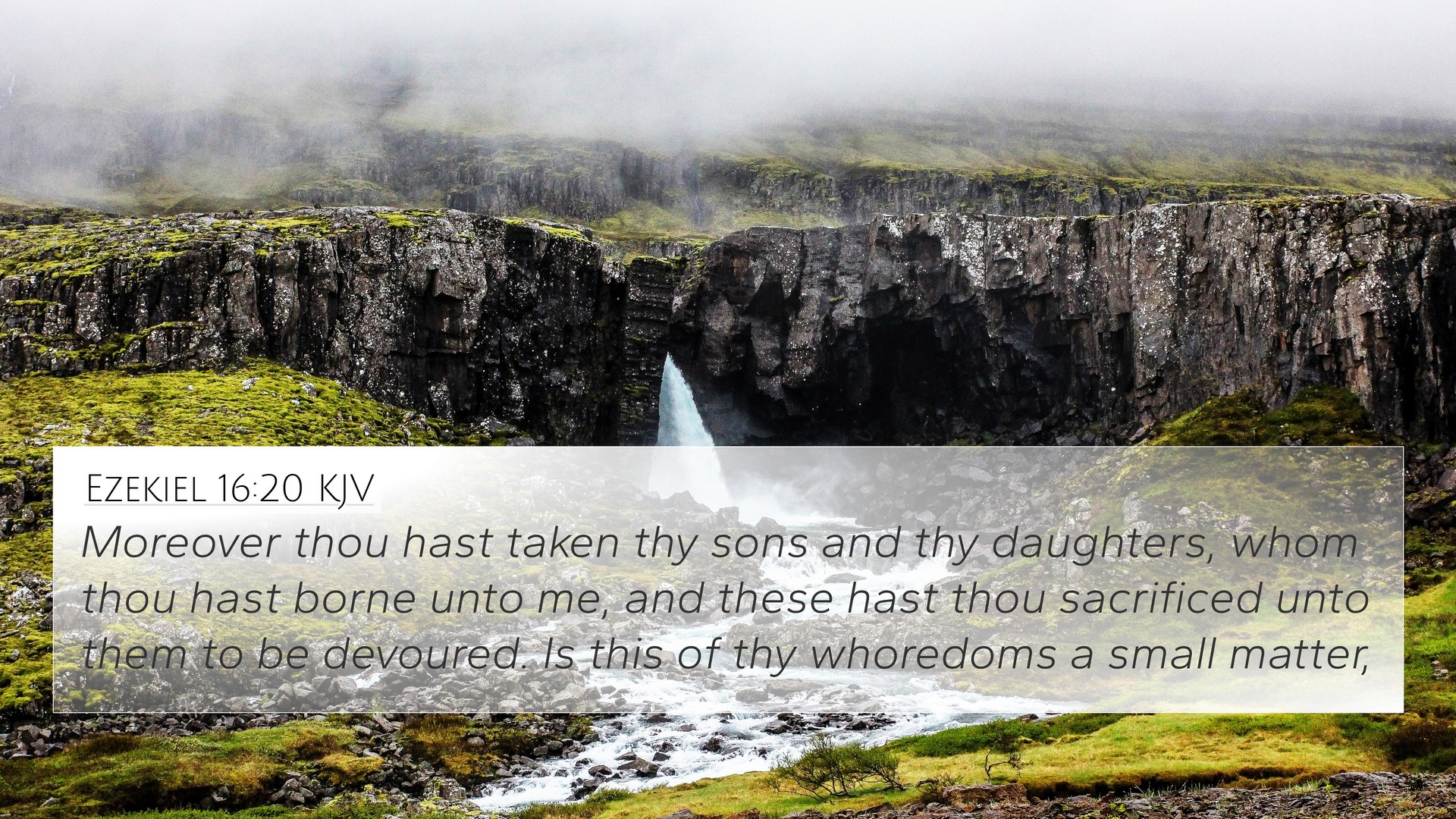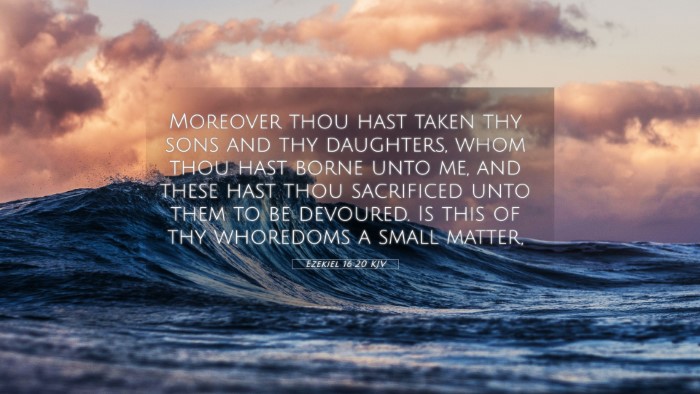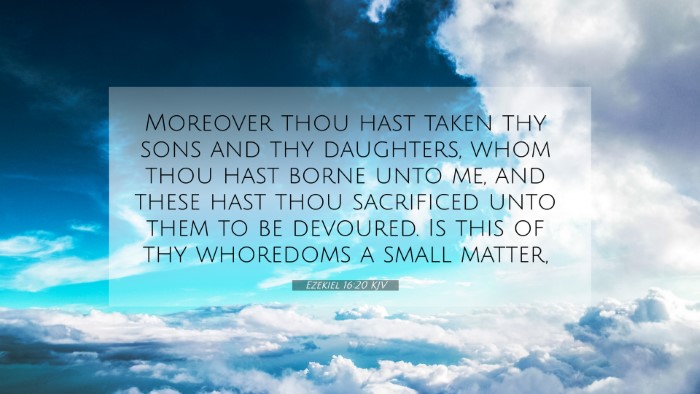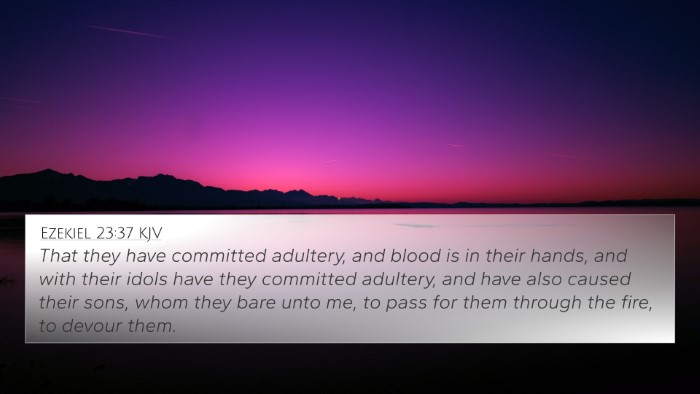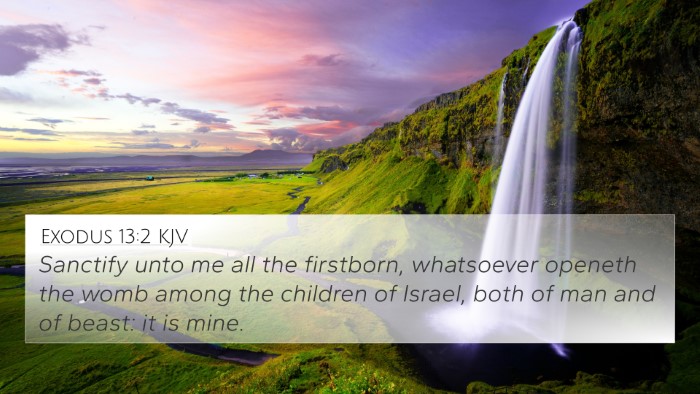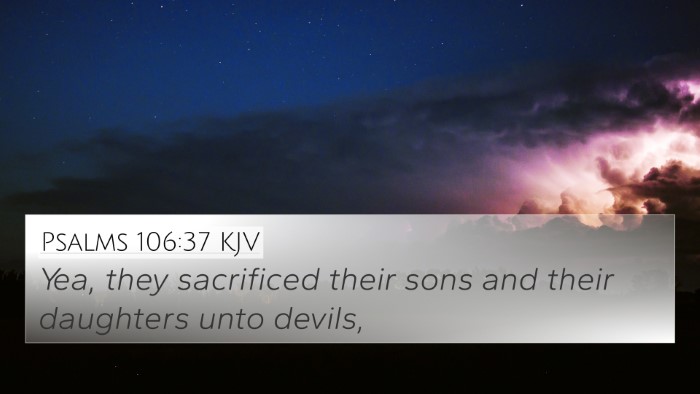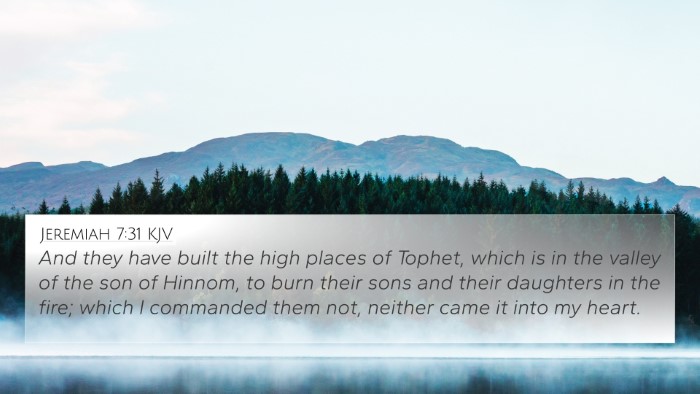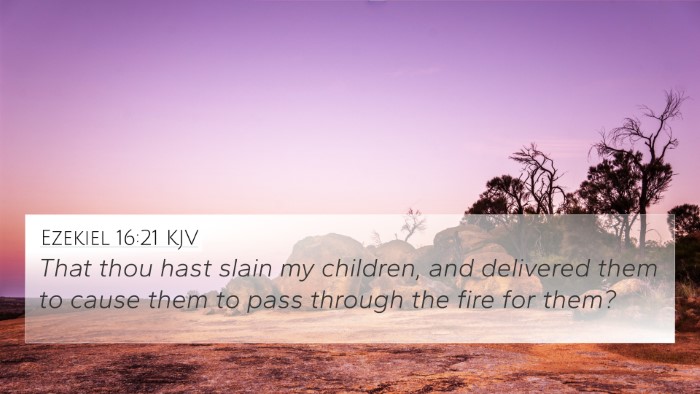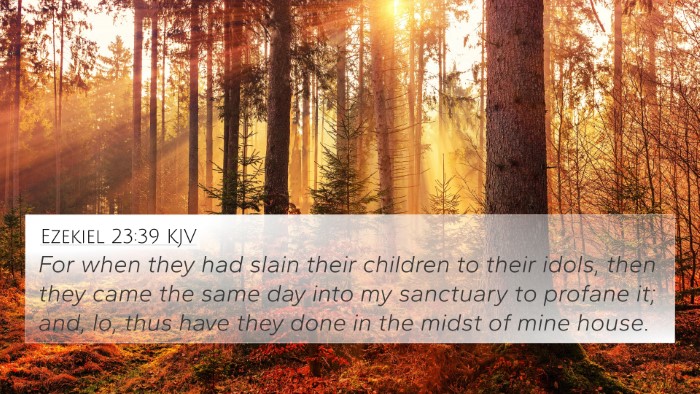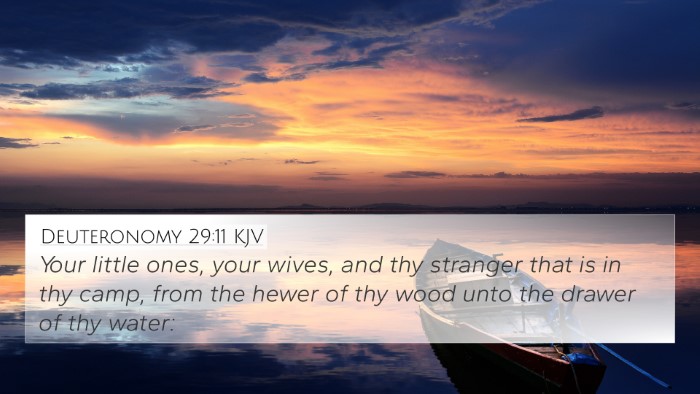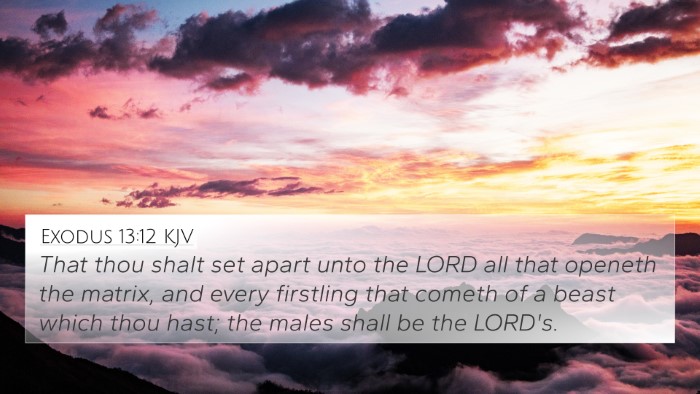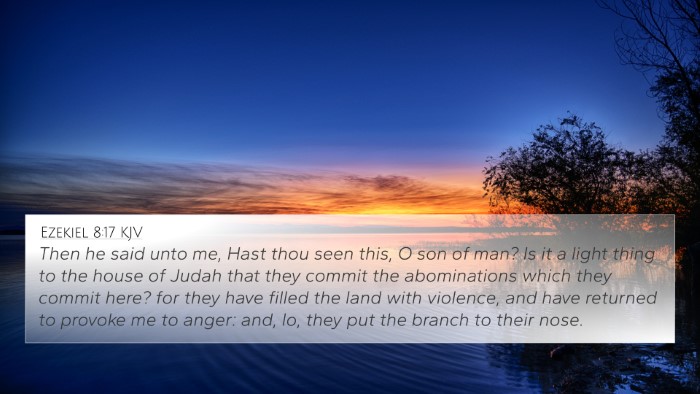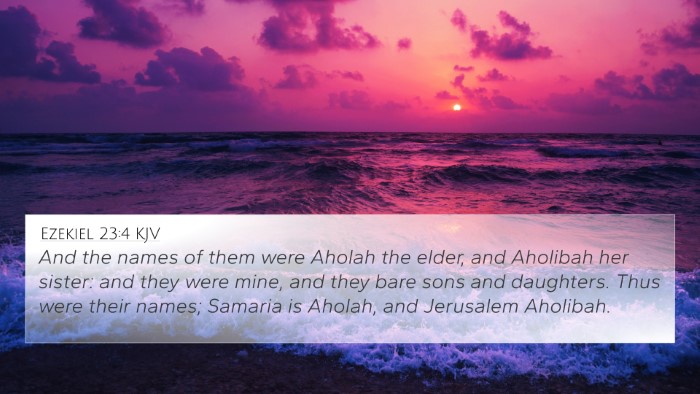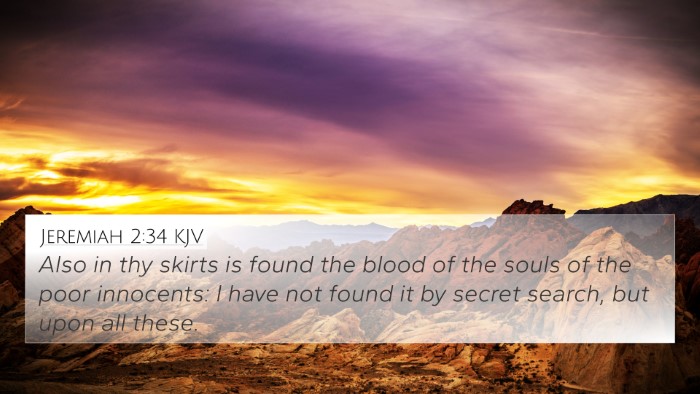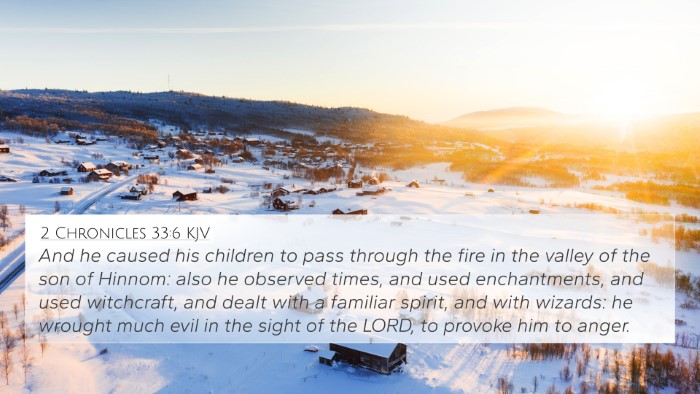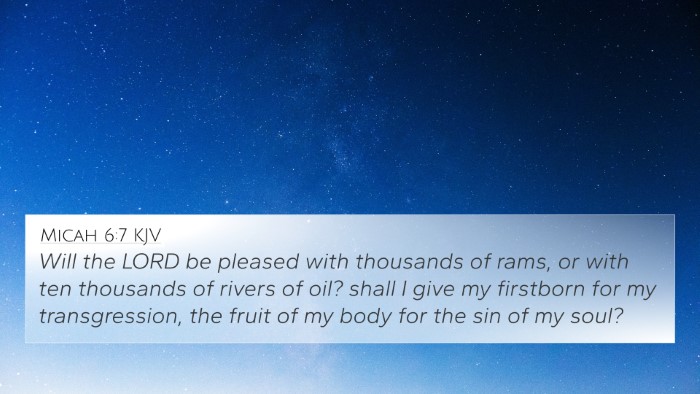Ezekiel 16:20 - Understanding the Verse
Ezekiel 16:20, which states, "And you took your sons and your daughters, whom you had borne to me, and these you sacrificed to them to be devoured. Were your harlotries so small a matter?" offers a poignant depiction of unfaithfulness and idolatry. This verse has elicited numerous interpretations, emphasizing its theological and moral implications.
Verse Overview
In this verse, God, through the prophet Ezekiel, accuses Jerusalem of great unfaithfulness. It highlights the severity of idolatry and the consequences of forsaking God for false gods. The imagery used, particularly the mention of children being sacrificed, symbolizes the ultimate betrayal and the tragic misdirection of loyalty towards idols instead of the Creator.
Commentary Insights
Matthew Henry's Commentary
Matthew Henry emphasizes the horror of idolatry as a betrayal of God's covenant. He points out that the act of sacrificing one's children is a severe indictment against the people. Henry elaborates that such actions show a gross disregard for the blessings God bestowed upon them, reflecting a deeper spiritual corruption.
Albert Barnes' Notes on the Bible
Albert Barnes draws attention to the practice of child sacrifice prevalent in pagan religions. He explains that the act symbolizes ultimate loyalty to false deities and highlights the perversion of righteous instincts. Barnes underscores that this disloyalty was not just a minor infraction but a profound moral failing that warranted divine judgment.
Adam Clarke's Commentary
Adam Clarke explores the cultural context of the verse, emphasizing the seriousness of the accusations against Israel. Clarke notes the stark contrast between God's protective nature and the people's willingness to betray Him for idols. He suggests that this passage serves both as a warning and an indictment, urging readers to reflect on their fidelity to God.
Thematic Bible Verse Connections
Ezekiel 16:20 resonates with several other biblical texts that discuss themes of idolatry, loyalty, and divine judgment. Here are some relevant cross-references:
- Leviticus 18:21 - Prohibits child sacrifice and showcases the seriousness of idolatry.
- Jeremiah 7:31 - Also addresses the horrific practice of sacrificing children in the Valley of Hinnom.
- Isaiah 57:5 - Speaks of those who sacrifice their children in the ravines, showing a similar prophetic denouncement.
- Hosea 4:13 - Highlights the people's idolatry and how it leads to spiritual decay.
- 1 Kings 11:5 - Details how Solomon turned to idol worship, leading Israel astray.
- Matthew 10:37 - Jesus speaks about loving Him more than family, depicting total loyalty to God.
- Romans 12:1 - Paul urges believers to present their bodies as living sacrifices, contrasting true worship with idolatrous practices.
Implications of the Verse
The implications of Ezekiel 16:20 are profound as they underline the seriousness with which God views idolatry. It prompts readers to consider their own loyalties and the sacrifices made in pursuit of worldly desires over spiritual commitments. The verse serves as a call to reflect upon our allegiances and the content of our worship.
Cross-Referencing Biblical Texts
Engaging in cross-referencing this verse with others can deepen understanding and its applications for today. Tools for Bible cross-referencing, such as concordances and reference guides, help uncover thematic connections throughout Scripture. Utilizing these resources can reveal how other passages illuminate the meaning of Ezekiel 16:20 and the nature of idolatry more broadly.
Practical Application
For modern readers, Ezekiel 16:20 serves as a reminder of the importance of fidelity to God. It challenges us to examine what we value most and whether those values lead us away from God, much like the children of Israel were led into idolatry. It also encourages us to explore inter-Biblical dialogue that highlights God's unwavering commitment to His people and the severe consequences of turning away from Him.
Conclusion
In conclusion, Ezekiel 16:20 is a powerful reminder of the dangers of unfaithfulness and the seriousness of idolatry. Through careful study and comparative Bible verse analysis, we can better grasp the implications of this message for our lives today. Engaging with Scripture through cross-referencing enriches our understanding and helps us draw closer to God's truth.
